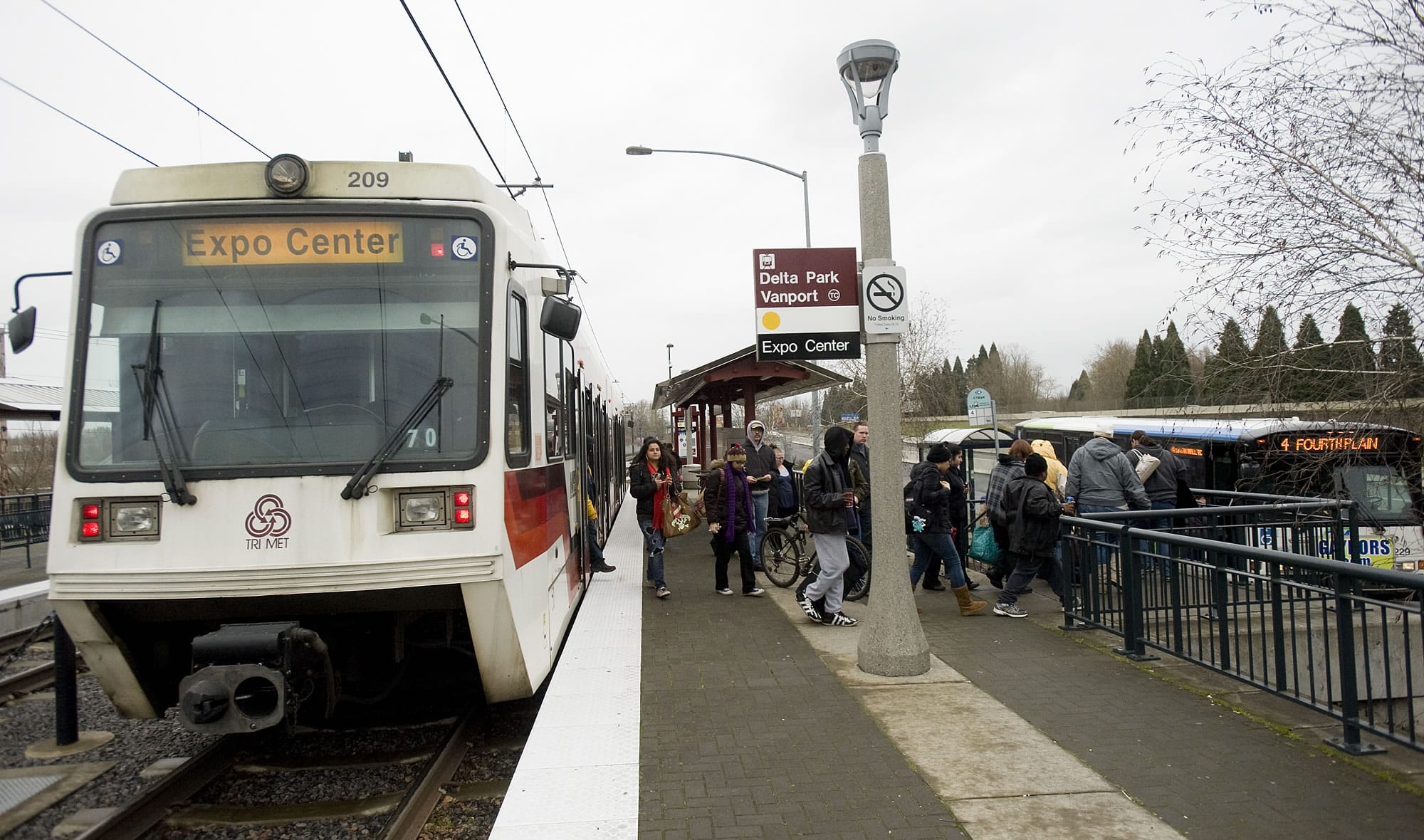A group of residents who sponsored an anti-light rail initiative filed a lawsuit against the city of Vancouver Thursday in Clark County Superior Court, arguing the city council had no authority to refuse to place the measure on the ballot.
The petitioners are Larry Patella, Debbie Peterson, Ralph Peabody, Charlie Stemper, Steve Herman and Don Yingling. In the lawsuit, written by Everett attorney Stephen Pidgeon, the petitioners ask a judge to rule that the proposed initiative “is within the scope of the initiative power as defined and declared in the Vancouver City Charter,” and that the proposed language is “clear and unambiguous.”
Petitioners want a judge to order that the initiative must be on the Nov. 5 general election ballot.
The initiative would create a city ordinance that would prohibit any city resources from being used to extend TriMet’s MAX line from Portland to Vancouver as part of the Columbia River Crossing.
The city has 20 days to file a response, Assistant City Attorney Linda Marousek said Thursday, and then a date will be set for oral arguments.
The deadline to submit November ballot measures to the Clark County Elections Office is Aug. 6.
On advice of city attorneys, the city council had previously declined to put the matter on the ballot. A major reason city attorneys advised councilors to reject the ordinance was it went beyond the scope of initiative power, and while the lawsuit does challenge that contention, Pidgeon argued at length about the city’s opinion that the initiative wasn’t written in “clear and unambiguous language.”
“The city may not like the policy, but they cannot credibly argue it is unclear,” Pidgeon wrote. “Quite the contrary, the policies’ clarity is exactly the reason the city opposes the initiative.”
If a judge doesn’t find that the language is “clear and unambiguous,” Pidgeon wrote that the judge should either “sever any offending provision, term, or language” or declare the city’s requirement violates free speech.
On May 6, the Vancouver City Council declined to place the initiative on the November ballot.
The council vote was 5-2, with Mayor Tim Leavitt and Councilors Jack Burkman, Bart Hansen, Jeanne Harris and Larry Smith in the majority. Councilors Bill Turlay and Jeanne Stewart expressed frustration with the fact that voters couldn’t be heard.
It was the first time the council had discussed the petition since it had been certified. In April, a Cowlitz County Superior Court judge struck down a state law that initially had rendered invalid hundreds of signatures on a petition to get the initiative on the ballot.
Vancouver City Attorney Ted Gathe reiterated to the council the legal analysis he gave in March, which was that the initiative falls outside the scope of the city’s initiative powers and would not be legally defensible. Marousek ran through about 15 ways the initiative violates the city charter, state law and legal precedent.
In a March 12 memo to the council, Gathe wrote, “Overall, the initiative as drafted is ambiguous and susceptible to multiple interpretations. The ambiguity itself means that the initiative fails to comply with the basic requirement of the charter: ‘The proposed ordinance shall be expressed in clear and unambiguous language and so that its entire effect is apparent on its face.'”
Also, Gathe wrote, the initiative proposes to limit “light-rail-related City Council legislative authority, city staff administrative work, City Council budgeting authority and past expenditure of city resources.” All those limitations, Gathe said, “are beyond the permissible scope of the local initiative power.”
In Thursday’s lawsuit, Pidgeon wrote that the initiative does not seek to restrict (Oregon Department of Transportation), (Washington Department of Transportation), Tri-Met or C-Tran or the CRC project; it merely seeks to express the views of the city’s residents on whether the city of Vancouver should be partnering with the CRC.”
Prohibiting the city from using city revenues to extend light rail into the city, Pidgeon wrote, does fall within the scope of initiative power.



